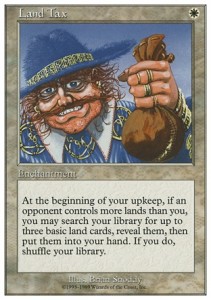Are you a Quiet Speculation member?
If not, now is a perfect time to join up! Our powerful tools, breaking-news analysis, and exclusive Discord channel will make sure you stay up to date and ahead of the curve.
Most of you are readers of QuietSpeculation.com because you plan to leverage your knowledge of the financial world of Magic: The Gathering in a profitable way. This can mean a couple of different things to different portions of our readership.
Some of you may operate a Local Gaming Store, some of you may travel to large events for trading and sell cards on eBay, others use trading to reduce the overall costs of playing Magic. Whichever you are, you need to know and be aware of what the government is expecting you to report as income.
I am not an accountant and I’m not a tax attorney. In short, and as an obligatory warning: don’t hesitate to work with a professional on your taxes.
What do you mean by Hobby Tax?
A Hobby, in the eyes of the IRS, is an activity that is carried out without the intention of making a profit. The idea behind income taxes for a hobby is set up to prevent tax shelter abuse. Since a hobby is undertaken without the intention of making a profit, you may not deduct any losses incurred during your non-profit hobby from your overall income at the end of the year. However, if you have incidental income (perhaps from speculating on a batch of cards) you must report it and are able to deduct any other expenses incurred from your hobby as a result. You simply cannot deduct more expenses than the income you report from that hobby. 
Why does this matter?
It matters a lot. Hobby Income is not subject to Self Employment tax. Self employment tax is approximately 15% in the United States, and this is in addition to any income tax you owe. Your income as a hobby is still taxable, but is not subject to additional Self-employment tax. Because a hobbyist is only allowed deduct up to the amount he profits in expenses, there is no way to deduct your hobby expenditures from your net income that came from other sources like a typical employment. In order to be able to deduct all of your expenses, you must operate as a business and pay your Self Employment tax.
Imagine your year looked like this:
You traveled to some GP’s, you played all the local PTQ’s and did lots of trading and buy/sell on eBay. Perhaps your eBay gross income was $3,000 and your total expenses on the year were $4300. You could write off up to $3000 on your taxes, but could not get a tax benefit from losing money on the year. If it was the other way around, with a Gross Income of $4300 and expenses of $3000, you could deduct $3000 and pay income tax on the remaining $1300 without being held accountable for Self Employment tax.
How do I know if what I’m doing counts as a hobby?
The IRS doesn’t exactly lay out this as clearly as one would hope. But ,ultimately ,if you get audited by them, they use a number of factors to determine this. This link shows their checklist of things that the IRS will consider (excerpted here) to verify if an income is considered a hobby or a business.
- Does the time and effort put into the activity indicate an intention to make a profit?
- Do you depend on income from the activity?
- If there are losses, are they due to circumstances beyond your control or did they occur in the start-up phase of the business?
- Have you changed methods of operation to improve profitability?
- Do you have the knowledge needed to carry on the activity as a successful business?
- Have you made a profit in similar activities in the past?
- Does the activity make a profit in some years?
- Do you expect to make a profit in the future from the appreciation of assets used in the activity?
Further, “An activity is presumed for profit if it makes a profit in at least three of the last five tax years, including the current year.” So if you’ve been doing this long enough where the IRS can see a track record of you reporting income, they will consider you a business and you should report your income accordingly.
PayPal
If you conduct business on PayPal, you need to be aware of how they report that income to the IRS.
If you sell over $200,000 in Gross Sales and receive over 200 total payments, they are going to report all of your income to the IRS, they will notify you of this and request appropriate tax information from you.
International Laws
In many European countries, the law is similar in some ways but not others. You’ll want to be very careful to be aware of the laws in your own home country. Most countries where I was able to find documentation stated that you can only deduct the expenses incurred in the process of earning the hobby income, and you can deduct no more than the amount you earned.
In Closing
If you feel you fall into the Hobbyist category, it means you likely are spending more on your hobby than you are earning. And that's fine, that’s what a hobby is. The benefit of that is you can deduct your expenses from the gross income you’ve made along the way. If it’s clear you’re operating a business, or you’ve been successful a number of years in a row, be prepared to pay Self Employment tax. Find a professional who can help you itemize your deductions and get started.
Next week I’ll talk more about taxes from a Self Employment standpoint.





Looking forward to next week! 🙂
Questions (for next week) :
– If I buy a collection from a person, is that as a cost?
– Is there a difference between sealed items (booster) vs singles?
My main concern is how to report the following: I buy sealed items with a vendor and sell those items to customers. Normal business. A certain percentage I open myself (boosters -> singles) and I sell the singles.
Do I sell those boosters to myself and consider the selling of singles as hobby?
The way I understand US tax law: Anything you spend as an expense to conduct business is a deductible cost from your business income. And that would apply to singles or boosters.
Once you branch beyond "Hobby" status, and are reporting income as a business, your entire operation is part of that business, so any expenses you have are deducted from your annual income before you pay taxes. There would be no benefit to separate the singles portion as part of your hobby. Being a business has some positives, For example all your costs are deductible, even if you are losing on the year, you'd get a tax credit on the next year, or a refund if you've pre-paid any taxes.
You'd need to get a receipt somehow from that individual who sold you the collection.